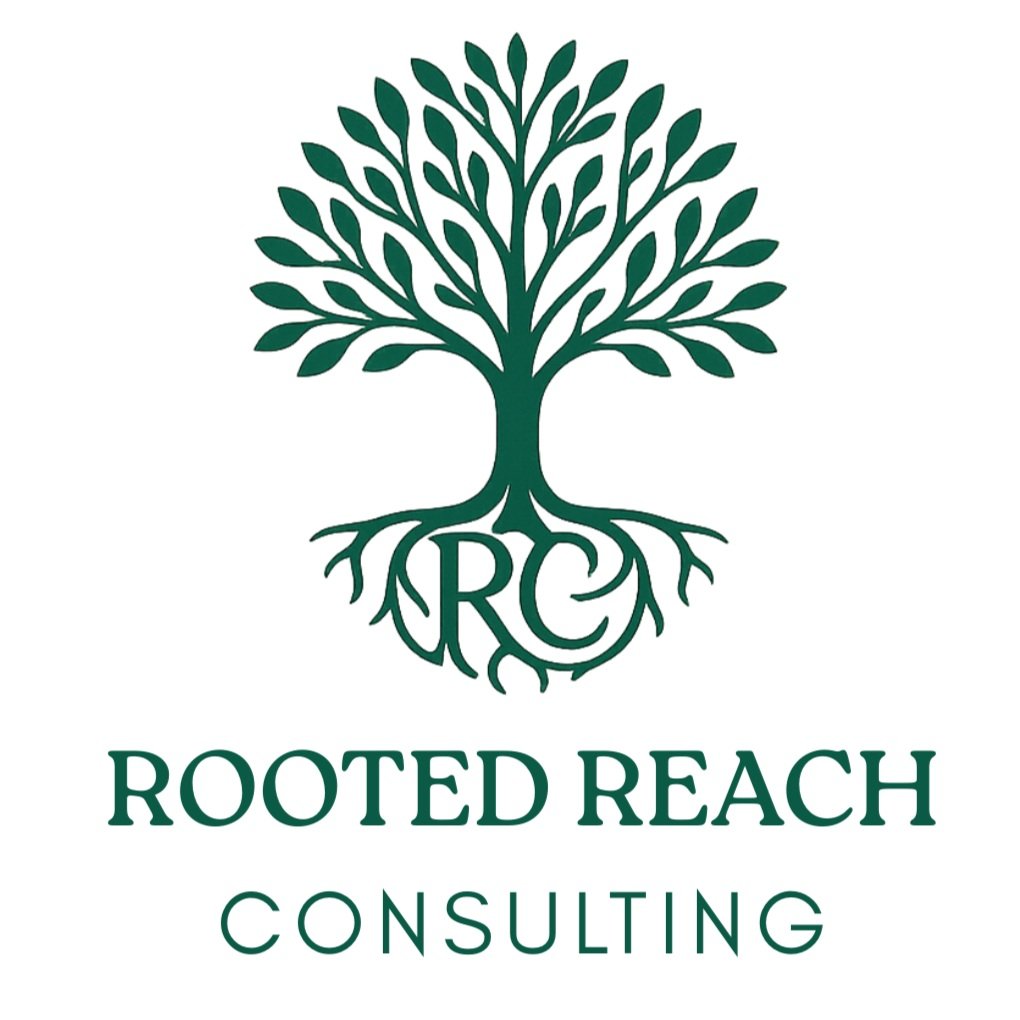Why Family Engagement Still Matters
Family engagement isn’t a trend—it’s a relationship. And in our rural communities, it’s often the difference between families feeling included versus invisible.
In today’s busy, tech-driven world, it’s easy to overlook the power of a simple conversation, a handwritten note, or a moment of trust between a teacher and a caregiver. But the research is clear: when families are engaged, kids do better.
At Rooted Reach, I work with schools, nonprofits, and parents to bring family engagement back to the heart of education and community-building—where it belongs.
The Research Behind It:
According to the National Association for Family, School, and Community Engagement (NAFSCE), meaningful family engagement improves academic achievement, school attendance, behavior, and graduation rates (Weiss et al., 2009). It’s not just a “nice to have”—it’s a must-have.
Even more compelling:
A report by Henderson & Mapp (2002) found that students with involved families, regardless of income or background, are more likely to succeed academically and socially.
The Harvard Family Research Project emphasizes that family engagement is most effective when it’s continuous, collaborative, and linked to learning.
When engagement is relational (not just transactional), families become true partners—not just participants.
Why It Matters in Rural Communities:
In rural areas, family engagement looks different—and that’s okay. Relationships are often more personal, but resources are fewer. Many parents juggle long work hours, lack access to transportation, or feel intimidated by school systems.
That’s why rural engagement needs to be:
Flexible: Offering events and communication on parents’ terms
Strengths-based: Valuing lived experiences and community knowledge
Intentional: Built around real relationships, not forms and flyers
When we design for accessibility and trust, families feel seen—and they show up.
Real Talk from the Field:
As a mom and educator, I’ve seen the power of family engagement from both sides. I’ve walked into classrooms as both a professional and a parent. I’ve worked with grandparents raising grandkids, foster parents navigating trauma, and blended families figuring it all out.
What they all want?
To feel included. Respected. Heard.
It starts with asking:
What matters most to you and your family right now?
What You Can Do Right Now:
Whether you’re a teacher, administrator, nonprofit leader, or parent, you can make a difference today:
Start small: Reach out to one family this week with a positive message.
Reflect: Are your events designed for connection—or attendance?
Collaborate: Bring families into the planning process, not just the audience.
Need help making it happen? That’s where Rooted Reach comes in.
Family engagement still matters—maybe now more than ever. Let’s not settle for surface-level involvement when we could be building something deeper, together.
Want to bring more heart, strategy, and connection to your family engagement work? Let’s chat.
Email: kayli@rootedreachconsulting.com
Follow: @RootedReachConsulting
References:
Henderson, A. T., & Mapp, K. L. (2002). A New Wave of Evidence: The Impact of School, Family, and Community Connections on Student Achievement. Southwest Educational Development Laboratory.
Weiss, H., Lopez, M. E., & Rosenberg, H. (2009). Beyond Random Acts: Family, School, and Community Engagement as an Integral Part of Education Reform. Harvard Family Research Project.
NAFSCE. (2021). Effective Family Engagement Strategies. www.nafsce.org

